Are you looking to secure a hospitality sponsorship for your upcoming event? Crafting the perfect letter is crucial to capturing the attention of potential sponsors and conveying the value of your partnership. In this article, we'll explore effective strategies and templates to make your request stand out while ensuring it aligns with the interests of hospitality businesses. Ready to learn how to create an irresistible sponsorship request letter? Let's dive in!
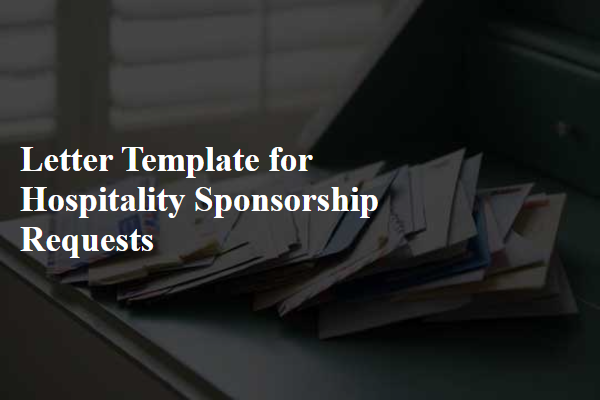
Clear purpose statement
A hospitality sponsorship request serves the purpose of seeking financial or in-kind support from businesses or organizations for events or initiatives within the hospitality sector. This statement outlines the specific event, such as a culinary festival or a tourism conference, highlighting its potential benefits like increased brand visibility, community engagement, or promotion of local tourism. Emphasizing the alignment between the sponsor's goals and the event's objectives can enhance the proposal's effectiveness. The ultimate aim is to foster a mutually beneficial partnership that elevates both the event's success and the sponsor's reputation within the hospitality industry.
Target audience relevance
A well-tailored sponsorship request for hospitality venues, such as upscale hotels or trendy restaurants, should emphasize the mutual benefits of the partnership. Highlight target audience demographics, such as age range (25-45 years old), interests (food enthusiasts, travel aficionados), and social media engagement (high influencer followings). Include specific events, like culinary festivals or music nights, where the hospitality venue will gain exposure. Stress geographical relevance, focusing on key markets like major cities (New York, Los Angeles) known for vibrant dining scenes. Emphasize potential collaboration opportunities, including promotional materials (social media posts, banners), to ensure maximum visibility and guest engagement. Clearly outline how the sponsorship aligns with the venue's brand image and target clientele.
Compelling sponsorship benefits
The hospitality industry thrives on partnerships that offer mutual benefits, particularly in enhancing brand visibility and customer engagement. Compelling sponsorship benefits include increased exposure through branding opportunities at high-profile events, access to targeted audiences in niche markets, and enhanced community goodwill. Strategic alliances can leverage promotional materials, product placements, and digital marketing campaigns across social media platforms, reaching thousands of potential customers. Sponsors can also benefit from exclusive access to VIP events, fostering relationships with industry leaders and influencers. Data-driven results, such as increased foot traffic and sales, showcase the tangible advantages of hospitality sponsorships. Overall, these partnerships pave the way for sustained growth and collaborative success.
Professional tone and structure
Sponsorship in the hospitality industry necessitates a tailored approach that aligns sponsor goals with event objectives. Effective communication of the audience demographic (targeting approximately 500 attendees, primarily professionals in the tourism sector), event benefits (branding exposure, networking opportunities), and sponsorship levels (ranging from $1,000 to $10,000) is essential. Highlighting the event location (a prestigious downtown convention center) and date (April 15, 2024) can enhance appeal. Mentioning past successful events and statistics (such as a 30% increase in attendance year-over-year) can reinforce credibility. Clear articulation of promotional strategies (including social media campaigns and press releases) ensures potential sponsors understand their visibility can increase substantially. Tailor the proposal to resonate with specific sponsors by emphasizing alignment with their business values and target markets.
Strong call to action
Sponsorship requests for hospitality events can emphasize benefits and opportunities for collaboration. Establishing a clear alignment between the event goals and the potential sponsor's interests can be vital. Highlight the audience demographics, projected attendance numbers (for example, over 500 participants), unique branding opportunities at the venue (such as prominent signage during the conference), and the positive community impact (for example, supporting local charities). Utilize compelling language to encourage sponsors to take immediate action, underscoring the limited availability of sponsorship slots and the potential for maximizing their brand exposure through strategic partnerships.
Letter Template For Hospitality Sponsorship Requests Samples
Letter template of hospitality sponsorship inquiry for community initiatives
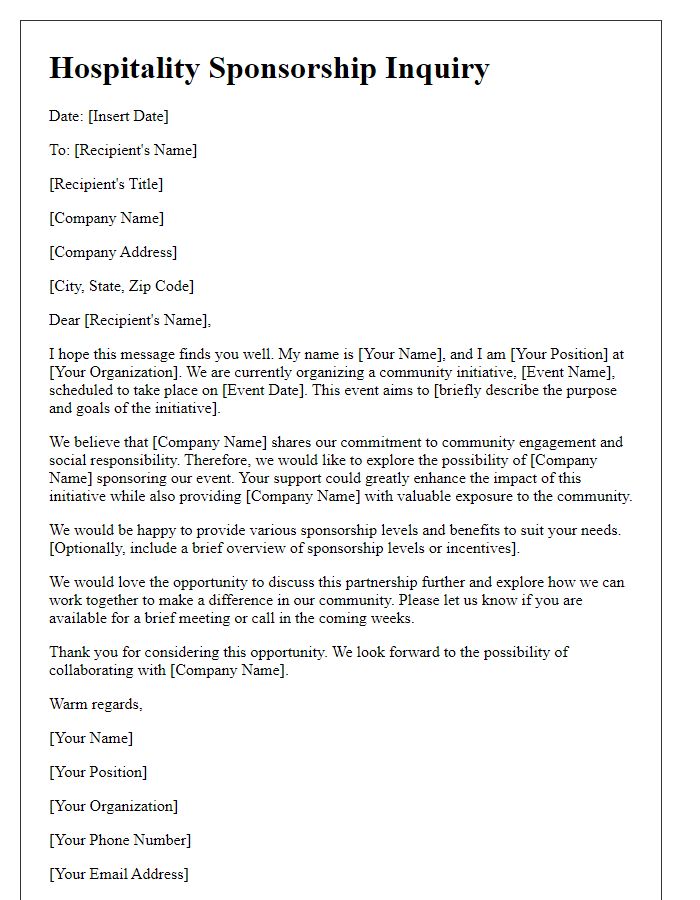
Letter template of hospitality sponsorship application for charity galas
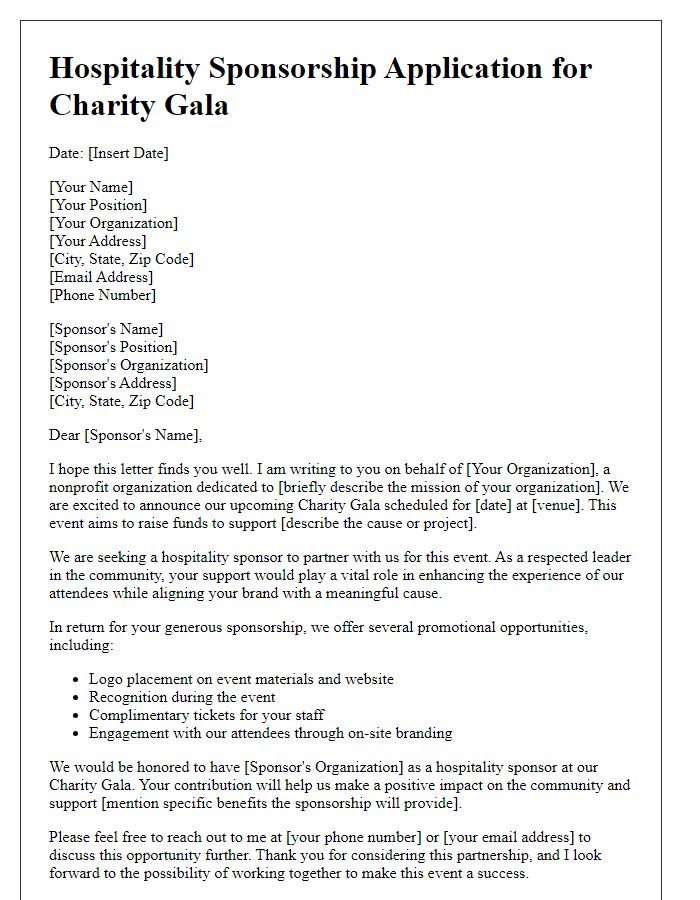
Letter template of hospitality sponsorship appeal for sports tournaments
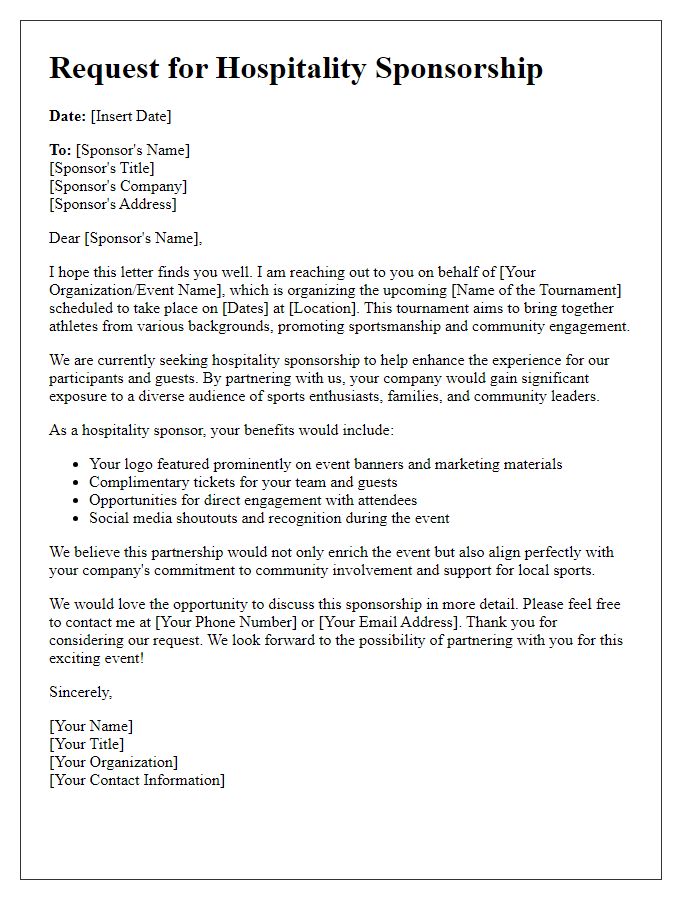
Letter template of hospitality sponsorship letter for arts and culture festivals
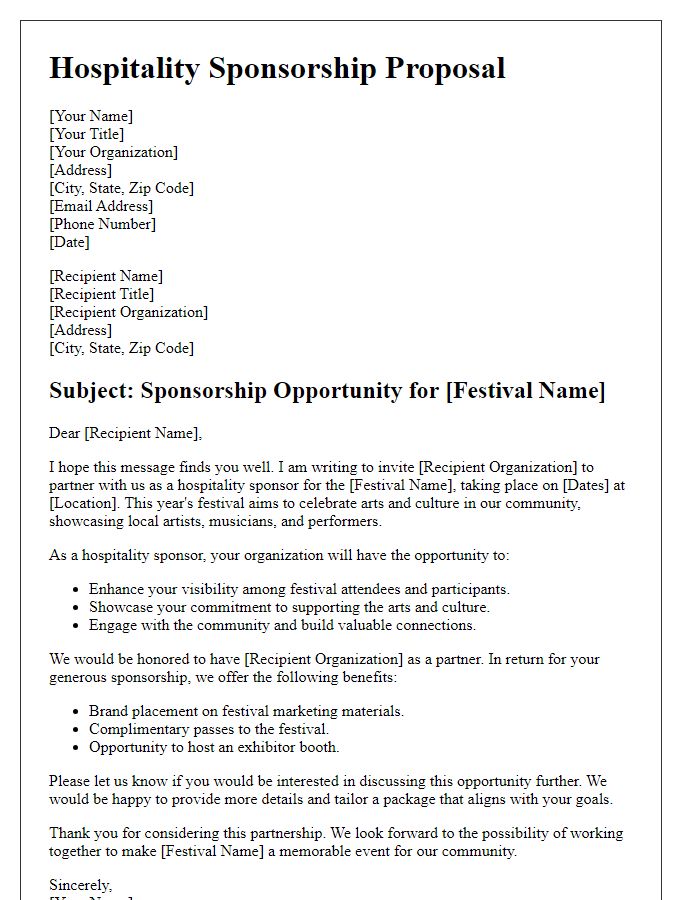
Letter template of hospitality sponsorship request for educational programs
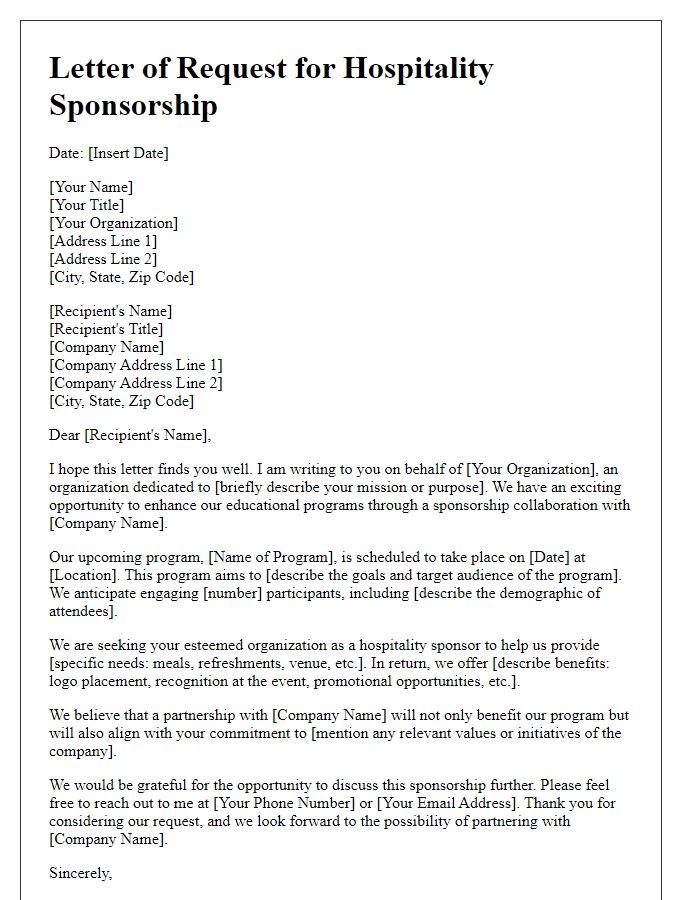
Letter template of hospitality sponsorship communication for wellness retreats
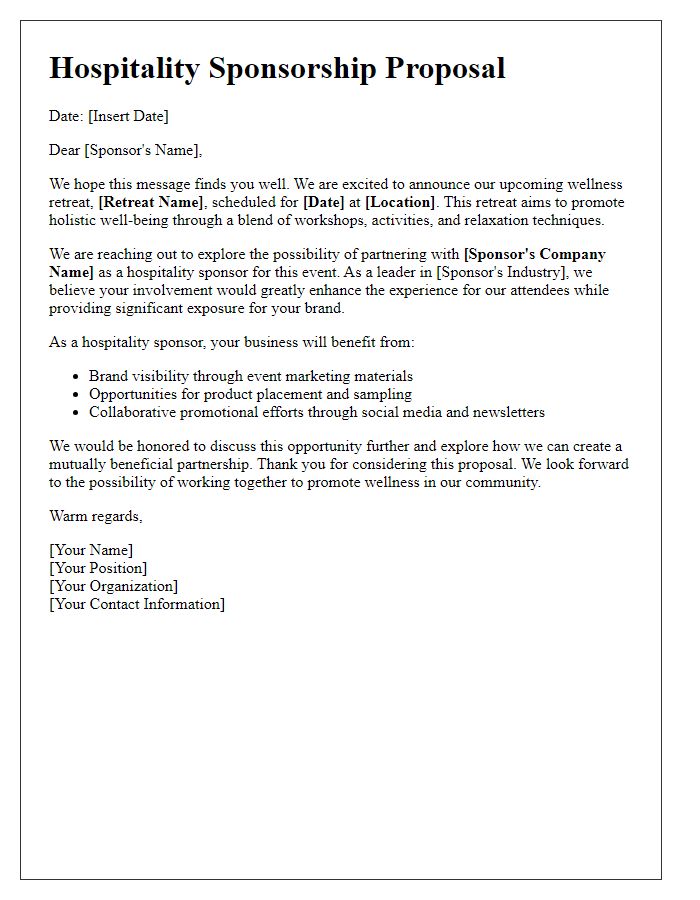
Letter template of hospitality sponsorship solicitation for charity runs
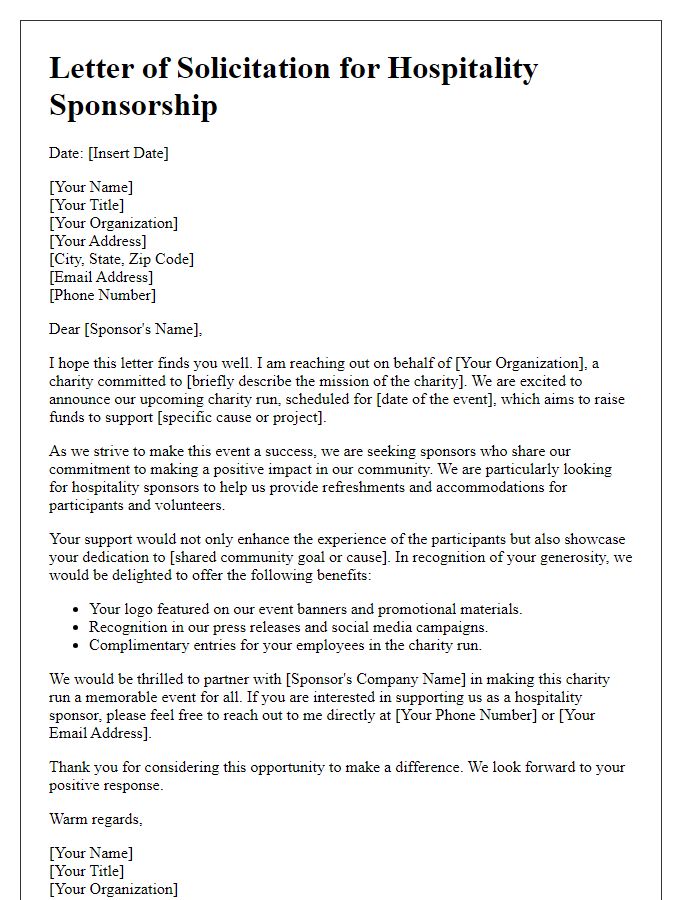

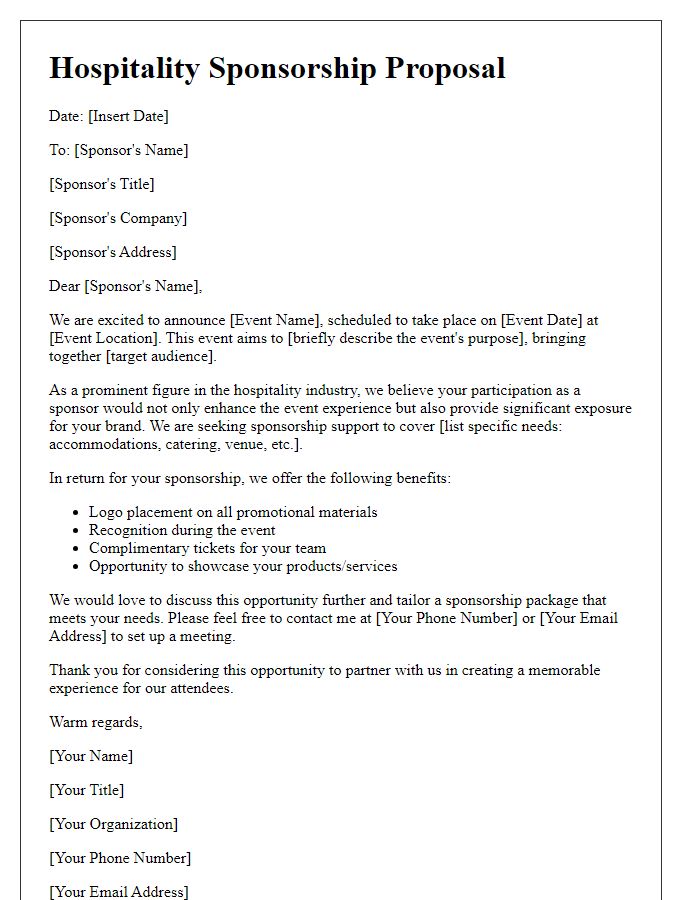
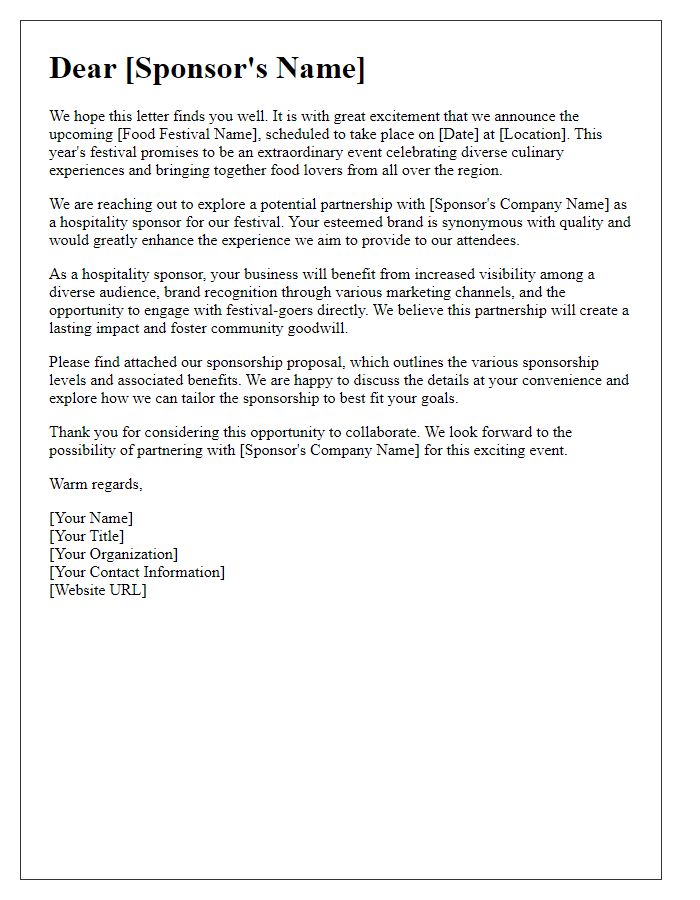
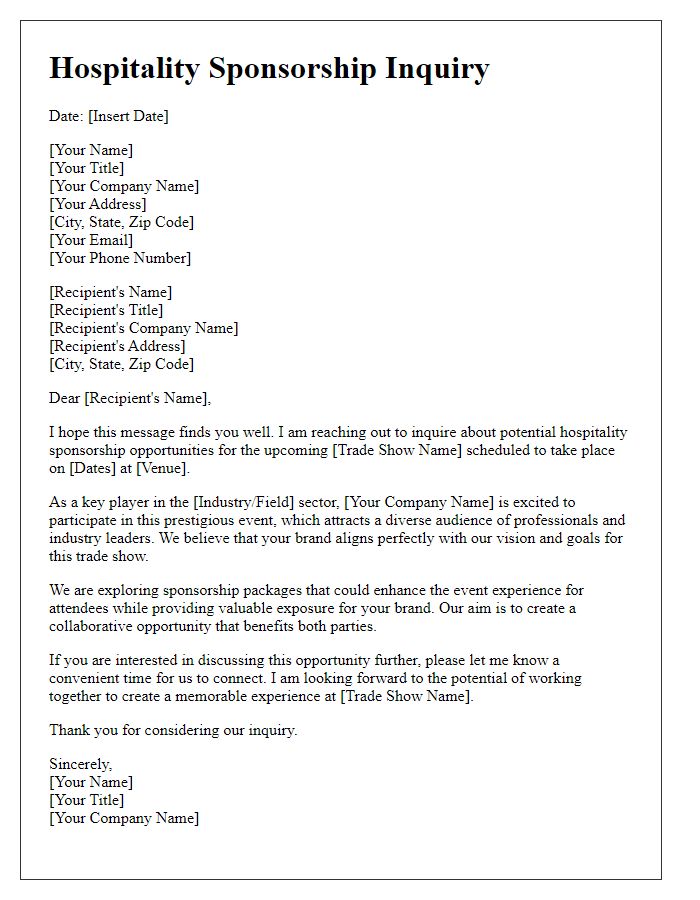

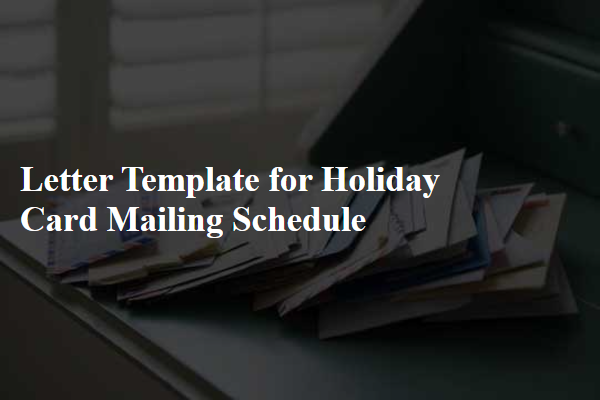
Comments